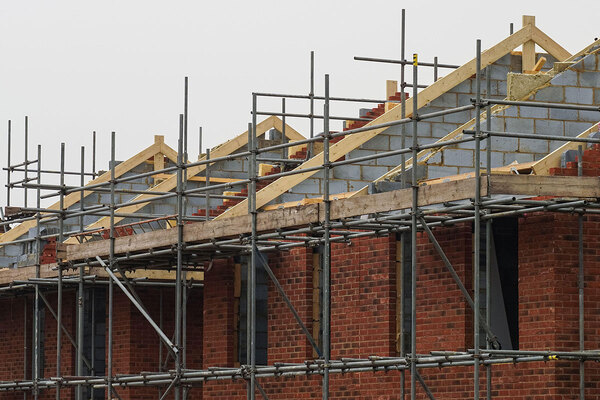You are viewing 1 of your 1 free articles
Competition watchdog extends probe into major house builders
The Competition and Markets Authority (CMA) has extended the investigation it started in February last year into eight house builders.
The watchdog opened the probe after it found evidence that some developers may be sharing commercially sensitive information.
In an update on its website, the CMA said the investigation will continue until at least May, due to “additional evidence gathering”, after the initial investigation came to an end at the end of last month.
The watchdog said: “The CMA has not reached a view as to whether there is sufficient evidence of an infringement or infringements of competition law for it to issue a statement of objections to any party under investigation.
“Not all cases result in the CMA issuing a statement of objections. The CMA will consider any representations it receives before any decision is taken as to whether competition law has been infringed.”
Initially, Barratt, Bellway, Berkeley, Bloor Homes, Persimmon, Redrow, Taylor Wimpey and Vistry were subject to the investigation.
But Barratt and Redrow completed their merger in August 2024, despite concerns raised by the CMA about the £2.5bn deal.
As part of its probe, the competition watchdog will seek to determine whether the country’s largest house builders have broken the Competition Act 1998 by sharing information with their competitors to influence the build-out of sites and the price of new homes.
Although the watchdog does not consider such sharing of information to be “one of the main factors” in the UK’s under-delivery of homes, it was concerned that it may “weaken competition” in the market.
It is understood that the possible data-sharing includes sales prices and discounts that are not publicly available, which could influence build-out rates and prices in local markets.
People who are found to have infringed the Competition Act can be hit with hefty penalties, including up to 10% of company turnover.
The investigation came after the CMA published its final report on the housebuilding market in Britain, which interrogated the “persistent under-delivery of new homes”.
The report, which followed a year-long study commissioned by Michael Gove, the housing secretary at the time, concluded that the UK’s “complex and unpredictable” planning system was responsible for sluggish housebuilding, along with a reliance on “speculative private development” that did not meet the affordable housing needs of communities.
Bloor, Redrow, Bellway and Taylor Wimpey previously told Inside Housing they were happy to cooperate fully with the CMA on this issue.
Sign up for our regulation and legal newsletter
Already have an account? Click here to manage your newsletters












